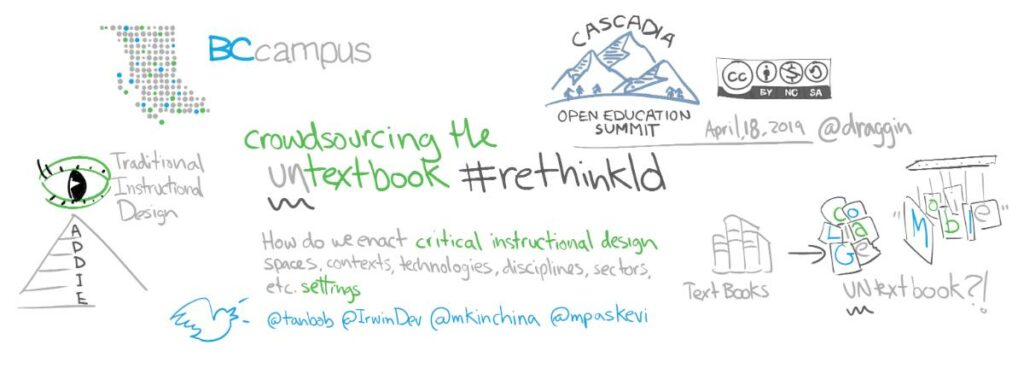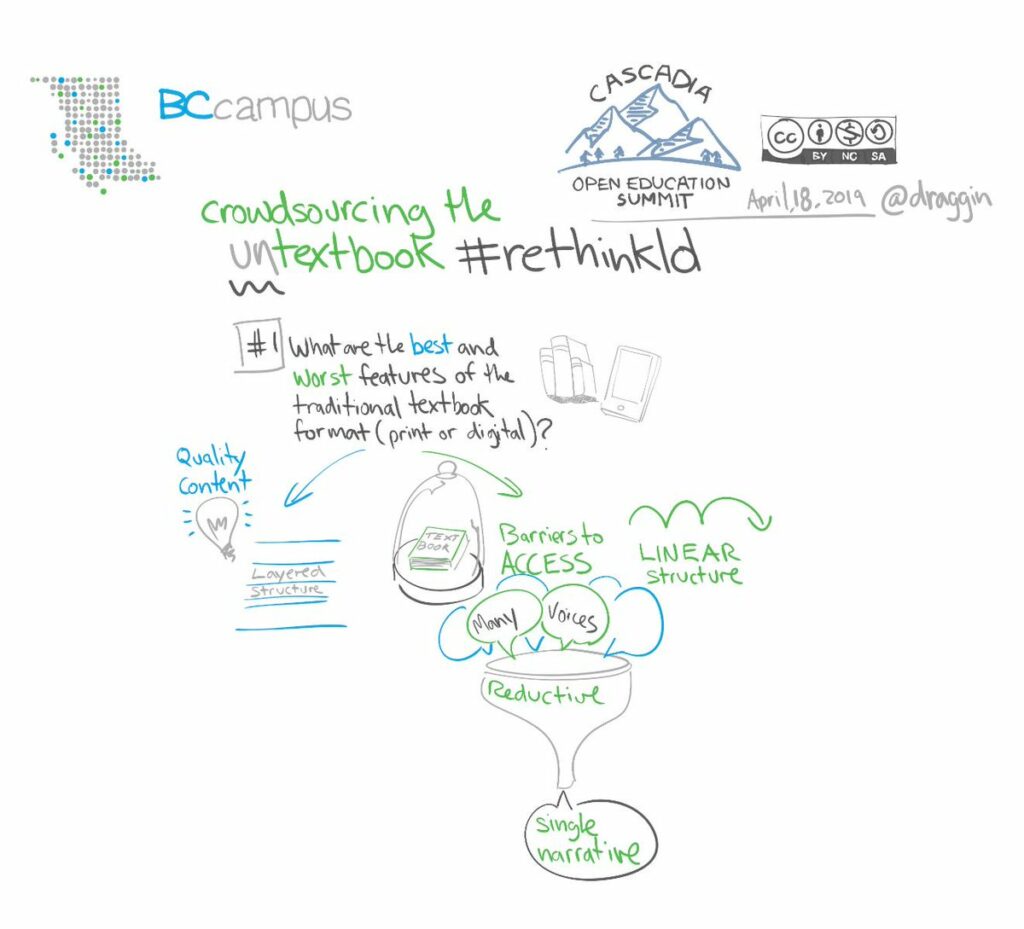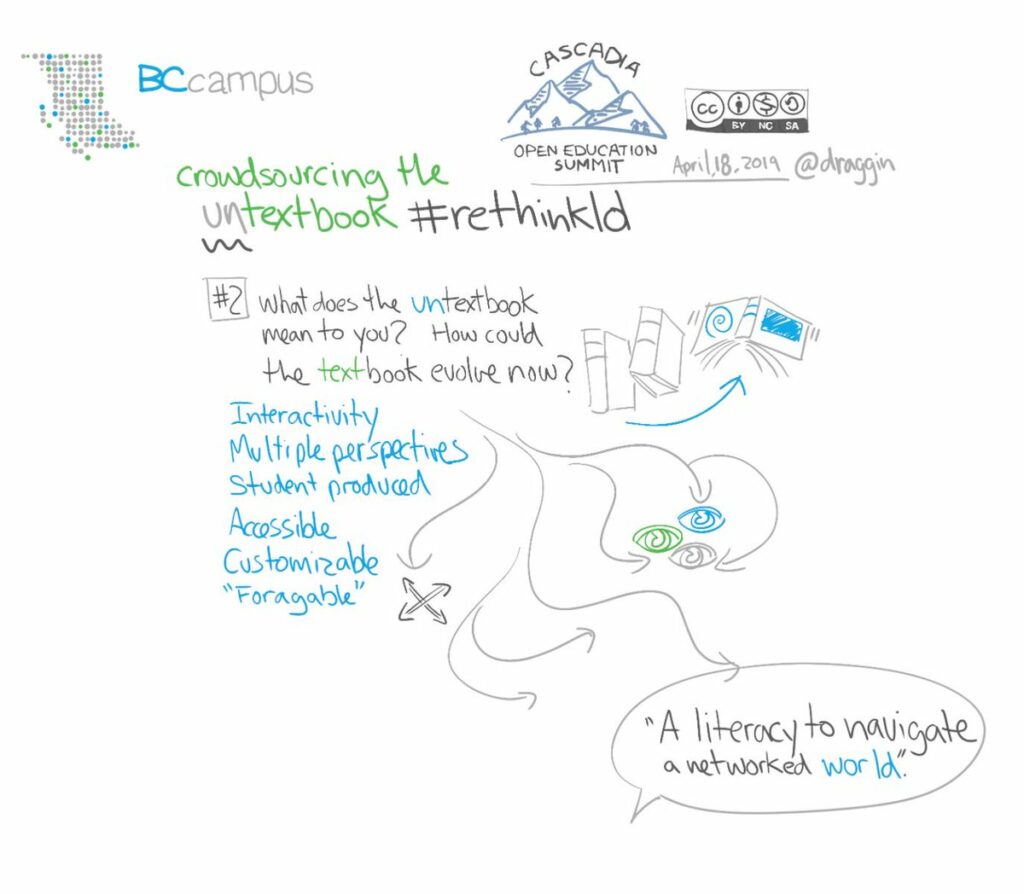About

The Rethink Learning Design project began in 2018 when a group of learning designers, educational technologists and developers met to discuss their experiences supporting learning design in the context of open education. Together, it was decided that we might build a resource to support learning design that considered the affordances of open education and further developed the field of learning design to meet the challenges and opportunities of open education. Originally designed to be a resource to support the design of open educational practices, the scope expanded to include a rethinking of how such content might be presented in a way that would invite feedback and contributions from readers. We imagined a resource to support learning design that could itself be iterative, contributory, and shaped by readers’ experiences, feedback, and ideas. In effect, the presentation of the resources would be a demonstration of open education practices in action
Why Rethink Learning Design?
While open educational practices have provided us with new ways of constructing education, at the same time they have been mapped onto many of our existing artifacts and systems such as textbooks, learning design processes such as ADDIE, and course publishing models. The textbook has recently been a prominent focus in the discourses and practices of open educational practices. Textbooks “mediate the structure of knowledge on the one hand, and the performance of teaching and learning on the other….at the same time, however, textbooks contain a deep contradiction. They are today’s mediation of yesterday’s knowledge in the light of educational projections about tomorrow” (Hamilton, 2003). We suspected a similar contradiction applied to textbooks and open pedagogies. While open licensing enables certain pedagogical practices, we wondered what other aspects of the textbook need to be rethought in the context of open pedagogies and practices?
As we began the process back in 2019, we all captured our thoughts about learning design related to the project. These quotes are captured below:
For me, critical learning design is about challenging our assumptions about instructional design processes, the teaching and learning environments that we build, and the artefacts that we’ve come to expect in a teaching and learning experience. What are the things that we think are important but maybe aren’t? What aspects are timeless, and what aspects no longer make sense when we embrace openness? How can we challenge these things in an inclusive and participatory way?
Dr. Tannis Morgan, Vancouver Community College
I’ve always hoped that openness would provide more of an impetus for innovation in teaching and learning. Certainly in my practice, it has changed the way I design my pedagogical approaches, strategies, resources, and assessment methods. Open resources and technologies can be used to support and enable active learning experiences, by presenting and sharing learners’ work in real-time, allowing for formative feedback, peer-review, encouraging learner contributions, and ultimately, promoting community-engaged coursework. Yet, open textbooks, in very traditional forms, remain a dominant theme in open discourses. I joined this project to consider and contribute to exploring how critical instructional design might be used to rethink course resources and design methods, and further the maturation of instructional design in light of open educational practices.
Dr. Michael Paskevicius, University of Victoria
Much instructional design today is embedded in thought structures and processes of an earlier era. Too often we remain bound up in a project management mindset and an instructional development process focused on highly predetermined learning activities and outcomes in a world that demands creativity and critical insight. In addition, many of the resources available to instructors and students in instructional design are based on traditional course structures and set faculty and learner roles. My hope is to be part of the development of a living resource for instructors, students and practitioners that both explores and models alternative approaches to instructional/learning design, in the form of an untextbook. The term “untextbook” is a placeholder for an open, creative, community-developed and -maintained resource that advances theory and practice in critical instructional/learning design.
Dr. Irwin DeVries, Royal Roads University
For me critical approaches to learning design means thinking about ways to open up our spaces or make them more permeable. I feel we are often constrained by technology, institutional policy or other traditional expectations about learning – be it responses to academic integrity or assessment. I am always trying to think about design that can open up barriers, perceived or real, so that we can invite learners in to take more ownership of their learning. This project takes one traditional element that often defines our learning spaces, the textbook, and asks us to rethink how it can be more open and sustainable. As a designer I wonder how rethinking one of our fundamental learning resources may open up new possibilities for practice.
Dr. Michelle Harrison, Thompson Rivers University
Taking Flight
From the start this project had two goals. The first was to develop a reader in critical learning design that is conceptualized from the beginning with its use in open pedagogy (Cronin, 2017). We wondered; how can we build open practices into the design of a learning resource itself so that students can contribute more effectively? How can these resources challenge traditional structures, roles, and hierarchies within learning environments? We knew we needed some help answering these complex questions, so we took them to conferences to gather feedback from learning designers, educators, students, and others who provided feedback.
The second goal was to examine how learning resources could be turned into a more collaborative environment to challenge traditional notions, processes, and roles of the learning designer. As learning designers are asked to change practice in response to more critical approaches to knowledge, how can a critical open learning design lens mediate the course development process?
Gathering Data
Through a series of workshops and online sessions, we asked participants to be creative about the idea of an “untextbook” as conceptualized with its use in open pedagogy (Cronin, 2017). We presented the project at the OER19 Conference held in Galway, Ireland; the Cascadia Open Education Summit held in Vancouver, British Columbia; and the Educational Technology Users Group held in Kamloops, British Columbia. The ideas generated in these sessions provided input for the creation of a platform that would host resources on critical learning design. The conversations proved to be very fruitful and formed the basis for a collaborative examination of learning design practices with the goal of a collective critical examination of practice.
Building the ‘Untextbook’
Based on feedback from the conference sessions we started to map out the functionality and design of the platform to host resources that would become the untextbook. Working with a talented and thoughtful designer, Tom Woodward, we determined what could and would be possible building upon the open-source software, WordPress.
Our goal was to ensure the platform itself could also be openly shared and developed further. One can find the source code on GitHub for forking or redevelopment. For other examples of how this model has been used, see https://aftersurveillance.net/observatory/contribute/ and https://antiracism.middcreate.net/contribute-resource/.
In January-May 2022, the platform was further reviewed, tested, and adjusted based on feedback from a small group of students who made use of the tool as part of their coursework. The experience of students and instructors using the tool was positive and lots of contributions were registered through the platform providing opportunities for the instructors to respond and for students to connect with each other’s ideas.
Calls for Participation
In November of 2021 we invited authors to submit contributions for the reader in critical learning design. In total, 14 contributions were collected and went through an open peer review process. We are delighted to present these articles here and offer the functionality developed for the open textbook as a means for participants to further engage with the writing.
The Future
While the reader has come to fruition, there is still much to be done in testing and developing the untextbook platform further. We have conducted data collection about the user interface and experiences of several students who used the platform and are currently synthesizing that data. We are interested in hearing from educators who might want to use the platform as is, with the articles presented here, or for use in another discipline with a distinct set of texts.
Please feel free to contact us for further information or inquiries.
Research Outputs from the Project
Harrison, M., Paskevicius, M., Devries, I., & Morgan, T. (2022). Crowdsourcing the (Un)Textbook: Rethinking and Future Thinking the Role of the Textbook in Open Pedagogy. The Open/Technology in Education, Society, and Scholarship Association Journal, 2(1), 1–17. https://doi.org/10.18357/otessaj.2022.2.1.30
Harrison, Michelle, DeVries, Irwin, Paskevicius, Michael, & Morgan, Tannis. (2022). Rethinking and recasting the textbook: Reframing learning design with open educational practices. In T. Jaffer, L. Govender, & L. Czerniewicz (Eds.), Learning Design Voices. University of Cape Town. https://doi.org/10.25375/uct.21359958
References
Cronin, C. (2017). Openness and Praxis: Exploring the Use of Open Educational Practices in Higher Education. The International Review of Research in Open and Distributed Learning,18(5). http://dx.doi.org/10.19173/irrodl.v18i5.3096
Hamilton, D. (2003). Instruction in the making: Peter Ramos and the beginnings of modern schooling. Accessed at http://www.onlineassessment.nu/onlineas_webb/contact_us/Umea/David/ramustext030404.pdf

